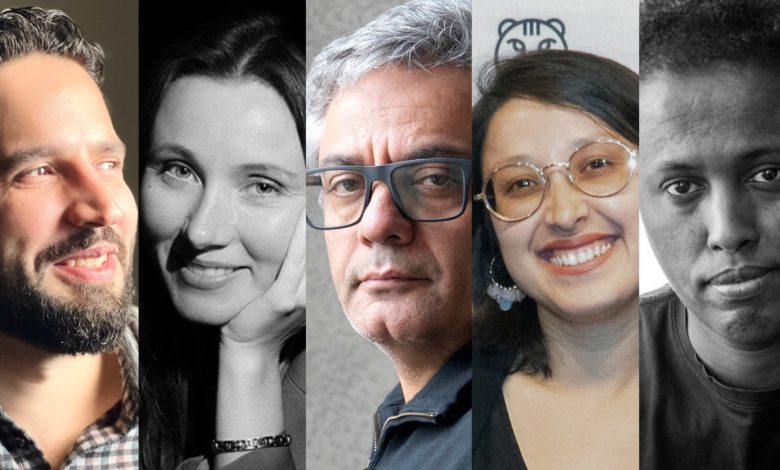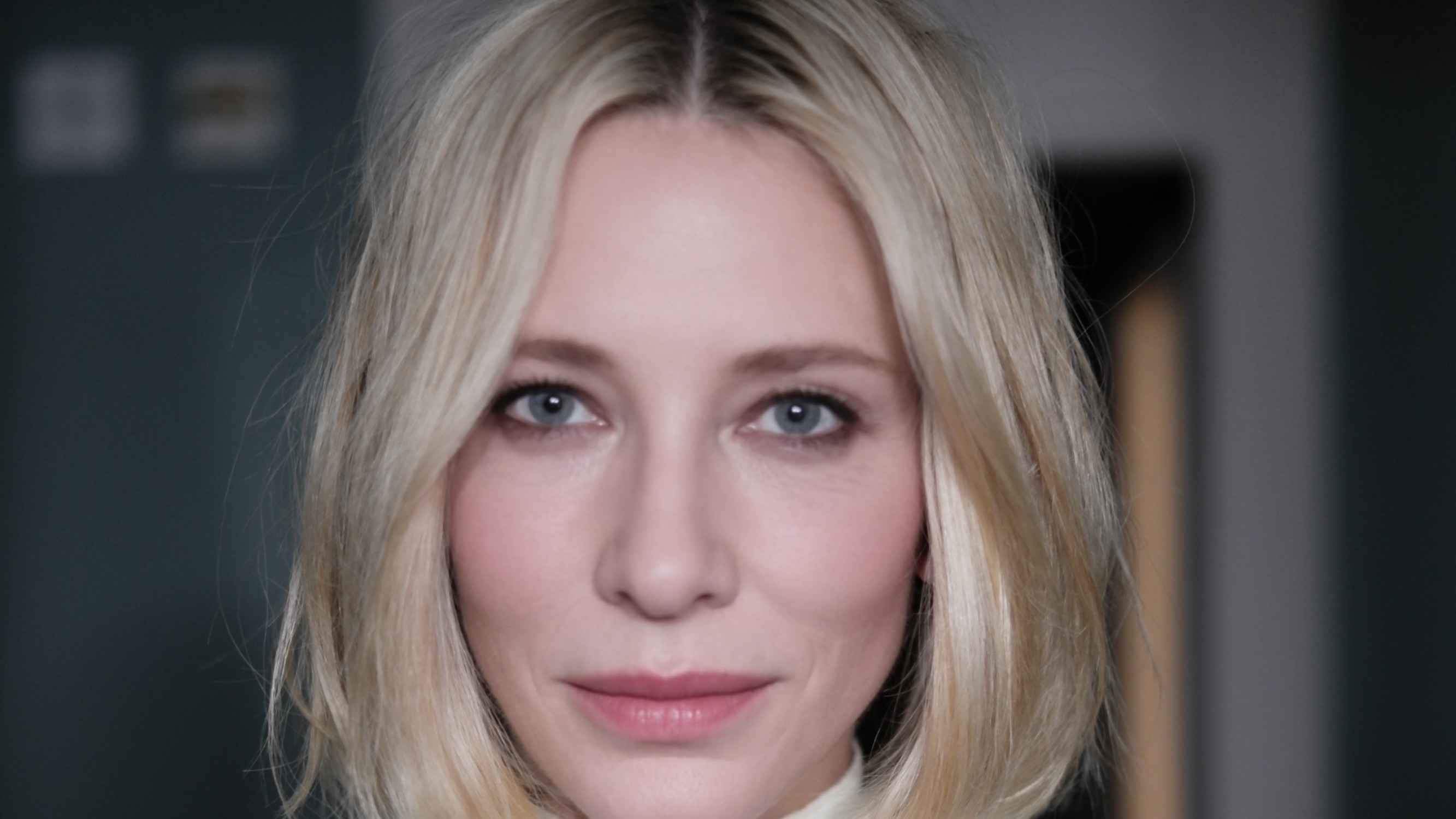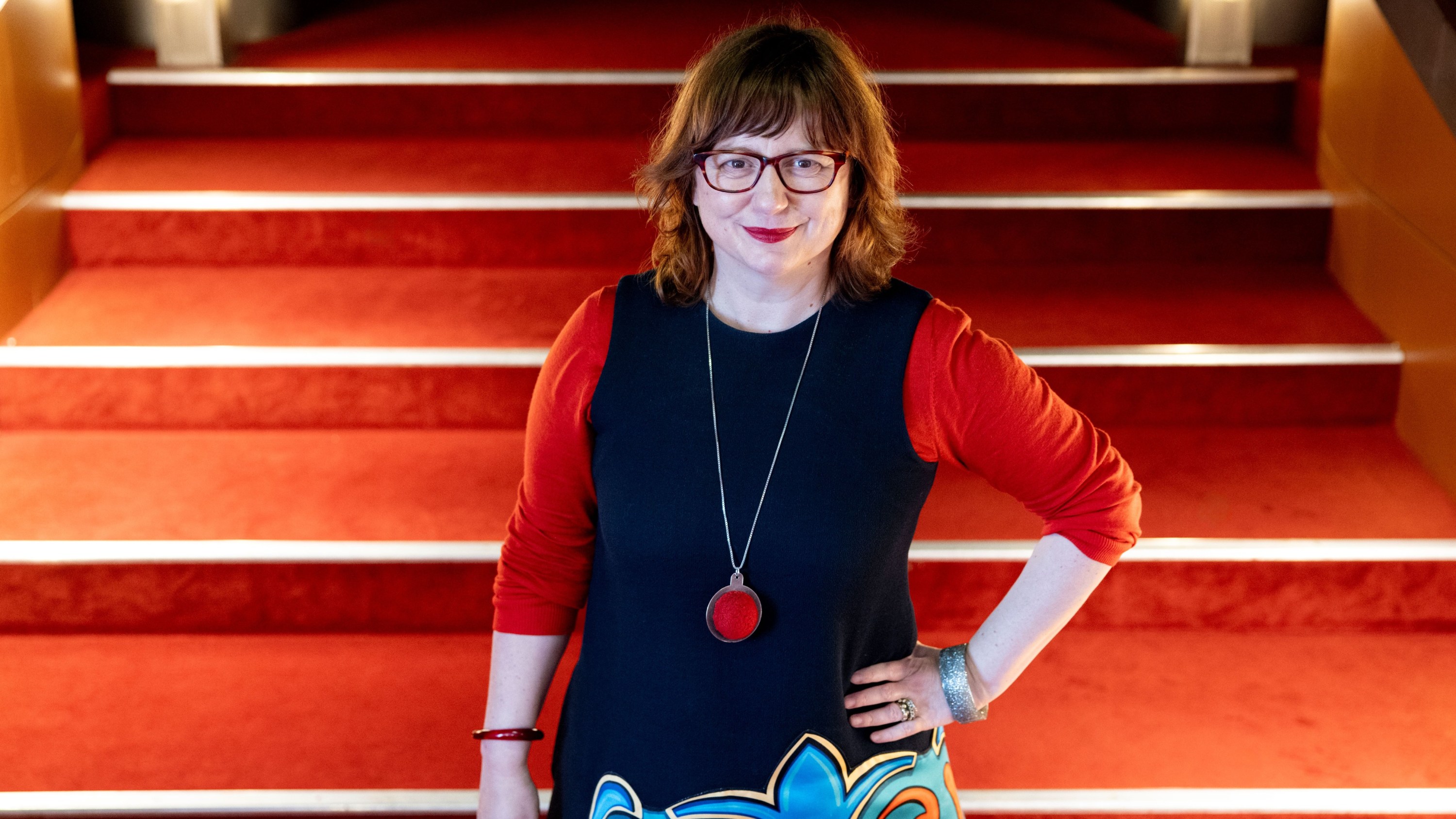Cate Blanchett, Afghan, Syrian Creators on Fund for Displaced Directors Backing “Surprising Narratives”

Five filmmakers from Iran, Syria, Afghanistan, Somalia and Ukraine are the recipients of the inaugural Displacement Film Fund, a short film grant scheme recently unveiled by Cate Blanchett and the International Film Festival Rotterdam’s (IFFR) Hubert Bals Fund, and the star was in Cannes on Friday to celebrate the recipients, who include Iranian auteur Mohammad Rasoulof (The Seed of the Sacred Fig), and raise awareness.
The recently unveiled fund is designed to “champion and fund the work of displaced filmmakers, or filmmakers with a proven track record in creating authentic storytelling on the experiences of displaced people.”
Blanchett was joined for the Cannes event by IFFR managing director Clare Stewart, grant recipients Maryna Er Gorbach, the Ukrainian director known for Klondike, and Somali-Austrian filmmaker Mo Harawe (The Village Next to Paradise), along with Rajendra Roy, chief curator of film at The Museum of Modern Art in New York.
“It’s a pilot program to allow a more mainstream audience access to the work of the five recipients of the grant,” Blanchett shared as she took time in between a busy Cannes schedule to talk to THR on Friday via Zoom. “Part of being here in Cannes is a call to arms to the rest of the industry to help to find mainstream platforms to get these voices out, because it’s potentially an incredibly exciting form of storytelling for a wider audience.”
Joining Blanchett in the Zoom conversation were Stewart, Syrian filmmaker Hasan Kattan (Last Men in Aleppo) and Afghan filmmaker Shahrbanoo Sadat, who fled to Germany and whose debut film Wolf and Sheep won the top award in the 2016 Directors’ Fortnight program at Cannes. The two filmmakers weren’t in attendance at Cannes.
“We’re doing short films with full production funding because of that urgency, that desire to get films out there, to make a profile for the need of the industry to galvanize around this,” explained Stewart, echoing the notion of the fund as “a call to action.”
She also highlighted that Roy’s presence is key given his role as “co-chair of the international award at the Oscars, and they have just made a change to the regulations there to support refugee and displaced filmmakers to be able to participate more fully in the awards process.”
Sadat shared with THR insight into her grant-receiving project with the working title Female Fitness of Kabul and the experience of earnings the grant. “Inside a crumbling Kabul gym, its walls covered with oiled muscle men and doors open to women for only a few hours each day,” reads a synopsis of her film. “Afghan housewives in scarves and long dresses reclaim not just their bodies, but also their spirits, their bonds, and their sense of self.”
When she found out about the grant, “I was like, ‘This is amazing. I’m the most perfect candidate’,” she recalled. “This is my life. I was born in Iran to an Afghan refugee family, and the very first ID card that I ever received was a refugee card. It means I was born a refugee, even if it doesn’t make sense. Until I was 11, I was living in Iran, and I was always called ‘Afghan,’ which is more of an insult. And then when we moved to Afghanistan, I was called Iranian there. I never really felt like I was in the right place.”
Then she evacuated with her family to Germany. “I didn’t even know about the word ‘displacement’,” she shared. “I thought this more and less how everyone feels. Of course, I connected displacement to land, but also to gender. I also connect displacement to women issues, because it’s kind of like double exile, being a woman in a society that you’re not really accepted in.”
How does that feel? “The more you try, the more you get rejected. And you don’t even feel at home under your own skin,’ Sadat explained. “I was thinking about this idea for a very long time, and then I thought this is the perfect platform for me to explore this idea through this gym in Kabul.”
Her film features “a group of housewives who are going there, and they do fitness. And they experience this in a little gym in Kabul with all these posters of men with exaggerated muscles and oily bodies, and these women trying to fit themselves in. I thought it would be interesting to also look at displacement from another point of view.”
Meanwhile, Kattan discussed his project with the working title Allies in Exile, for which he earned a Displacement Film Fund grant. “Two Syrian filmmakers, bound by a 14-year friendship forged in war, document their shared exile in the U.K. asylum system – until one is granted refuge and the other returns to a changed Syria, reflecting the impossible choices refugees face today,” reads a synopsis for the film.
“Last year was so difficult for me because I ended up here in the U.K. as an asylum seeker, and I was inside the asylum process, every day facing the system from inside and feeling the disappointment,” Kattan told THR. “I started from the zero point again. And through this experience and the revolution in Syria, documenting everything, telling a story feels like it’s the only way that we can scream or express our feelings.”
He added: “When I heard about and saw this grant and fund, I thought, ‘Oh my God, this is really, really what I need.’ Because I was having no hope to make this film, because finding money in this time and my situation – how do I express this? When you live this experience, you lose any hope around you. You start to feel hopeless. When I saw this grant, it was a big hope for me to bring light to this project, to this film, because I see it as helping me in my personal perspective and reflecting the situation of the asylum seeker.”
Concluded Kattan: “It’s not just about fleeing war, it’s not about the journey. It’s about the daily struggle and the human struggle in daily life. I hope I can make this project, this film, [create] a wide conversation about asylum seekers and refugees.”

Rasoulof was awarded his grant for a so far unnamed project with this plot description: “After the death of an exiled writer, his family tries to fulfill his wish to be buried according to his will – but honoring his request leads to unexpected complications.”
Harawe’s project with the working title Whispers of a Burning Scent is pitched this way: “On the day of a pivotal court hearing, a quiet man faces the unraveling of his marriage and the judgment of his stepchildren, while searching for solace in what once gave his life meaning.”
Er Gorbach’s Silk Road, also a working title, is described as “a timely Ukraine–Europe road movie about a young Ukrainian woman whose family has been torn apart by war: while her children live in Europe, she and her husband remain in Kyiv, working in a children’s hospital as the war goes on.”
The Displacement Film Fund pilot program is offering grants of €100,000 ($104,000) each to the five displaced filmmakers to make original shorts. Blanchett headed up the selection committee, joined by Wicked star Cynthia Erivo, documentarians Jonas Poher Rasmussen (Flee) and Waad Al-Kateab (For Sama), director Agnieszka Holland (Green Border), Rotterdam festival director Vanja Kaludjercic, activist and refugee Aisha Khurram, and Amin Nawabi [alias], the LGBTQ+ asylum seeker who was Rasmussen’s inspiration for the Oscar-nominated Flee.
“The numbers of people outside their their country of origin around the world has just ballooned and continues to grow,” Blanchett told THR. “I’m a global Goodwill Ambassador for UNHCR, and when I started working with them 10 years ago, the numbers were around 60 million, and it’s now over 120 million. And while people are displaced, they don’t stop being mothers, brothers, uncles, cousins, nor do they stop being filmmakers and artists. And given that it’s one of the great challenges that we’re facing as a species, it’s always bewildered me why these incredible stories, heartbreaking sometimes, yes, but inspiring and having more points of connection to people’s lives who are not displaced, why they don’t get told more frequently. So that was part of the DNA of the idea.”
She lauded “a real coalition of the willing” for making the fund happen quickly.

The five short films will have their world premieres at IFFR next year but Blanchett and Stewart “and others who are coalescing around the fund are also very committed to indeed [figuring out] what the lives of the films will be” beyond that, the Stewart said. “That’s what we are here to sort out,” Blanchett concluded.
And the star highlighted that the stories told by displaced creatives will be able to surprise audiences. “There are so many surprising narratives that emerge, often heartbreaking, but also full of resilience and transformation,” Blanchett said. “Part of the DNA of the fund in its pilot stage is to sort of reject and challenge the stereotypes and the categorizations that swirl around the discourse about what it means to be displaced. These might be genre-driven or romantic or surprising stories that really speak to the breadth of that experience and entertain an audience. And then they happen to find out that the filmmaker is displaced or that there’s much more connective tissue between their experience and their own.”
Concluded Blanchett: “It’s a wonderful beginning, in that way, to really allow the audience to go through some sort of revelatory transformation as much as perhaps the filmmakers getting a chance to pick up the pieces of their amazing careers that they had to leave behind when they left their countries.”
Source: Hollywoodreporter
HiCelebNews online magazine publishes interesting content every day in the movies section of the entertainment category. Follow us to read the latest news.
Related Posts
- Meghan Markle Gets Real About Money and the 'Guilt Mentality Surrounding Having a Lot'
- Hugh Jackman's ex speaks of 'betrayal' as divorce is finalized
- Barry Diller and the Twilight of the Hollywood Tell-All
- Jackie Chan (left), Ben Wang and Ralph Macchio in 'Karate Kid: Legends.'
Jonathan Wenk/Columbia Pictures
…
- ‘The White Lotus’ Creator Mike White to Compete On CBS’s ‘Survivor 50’





